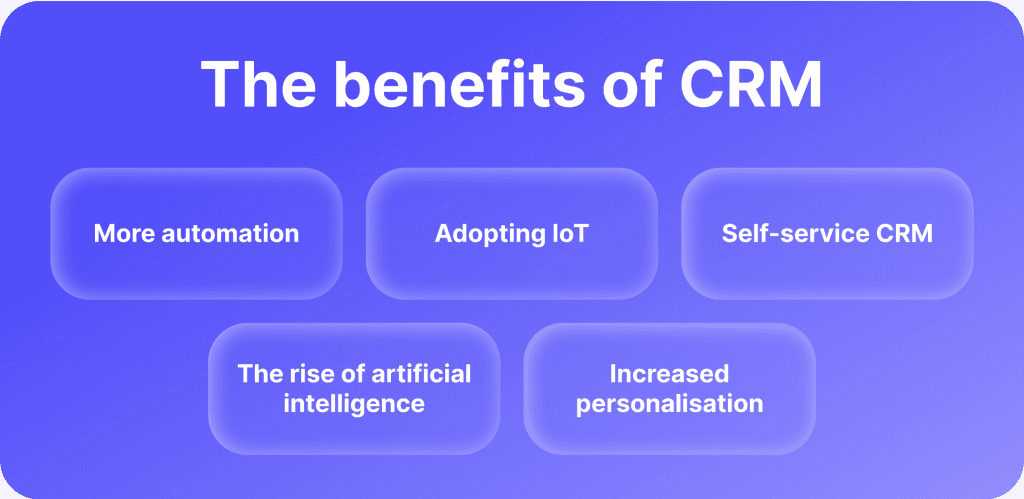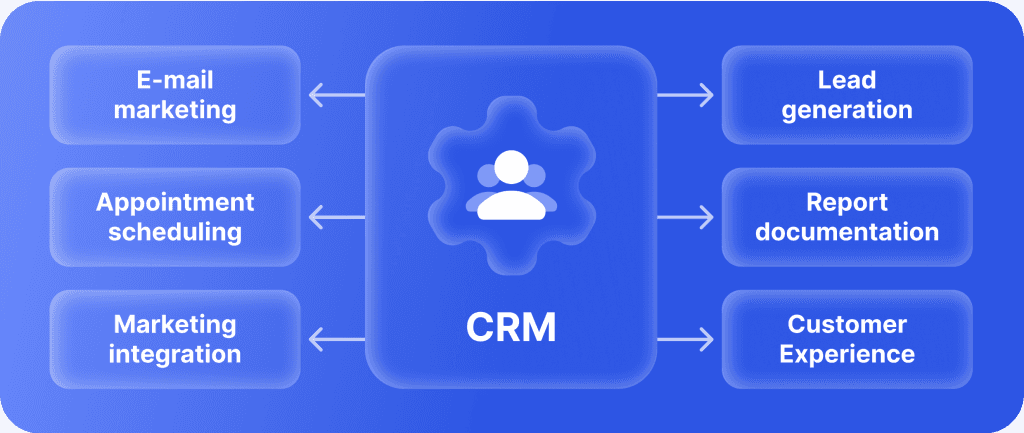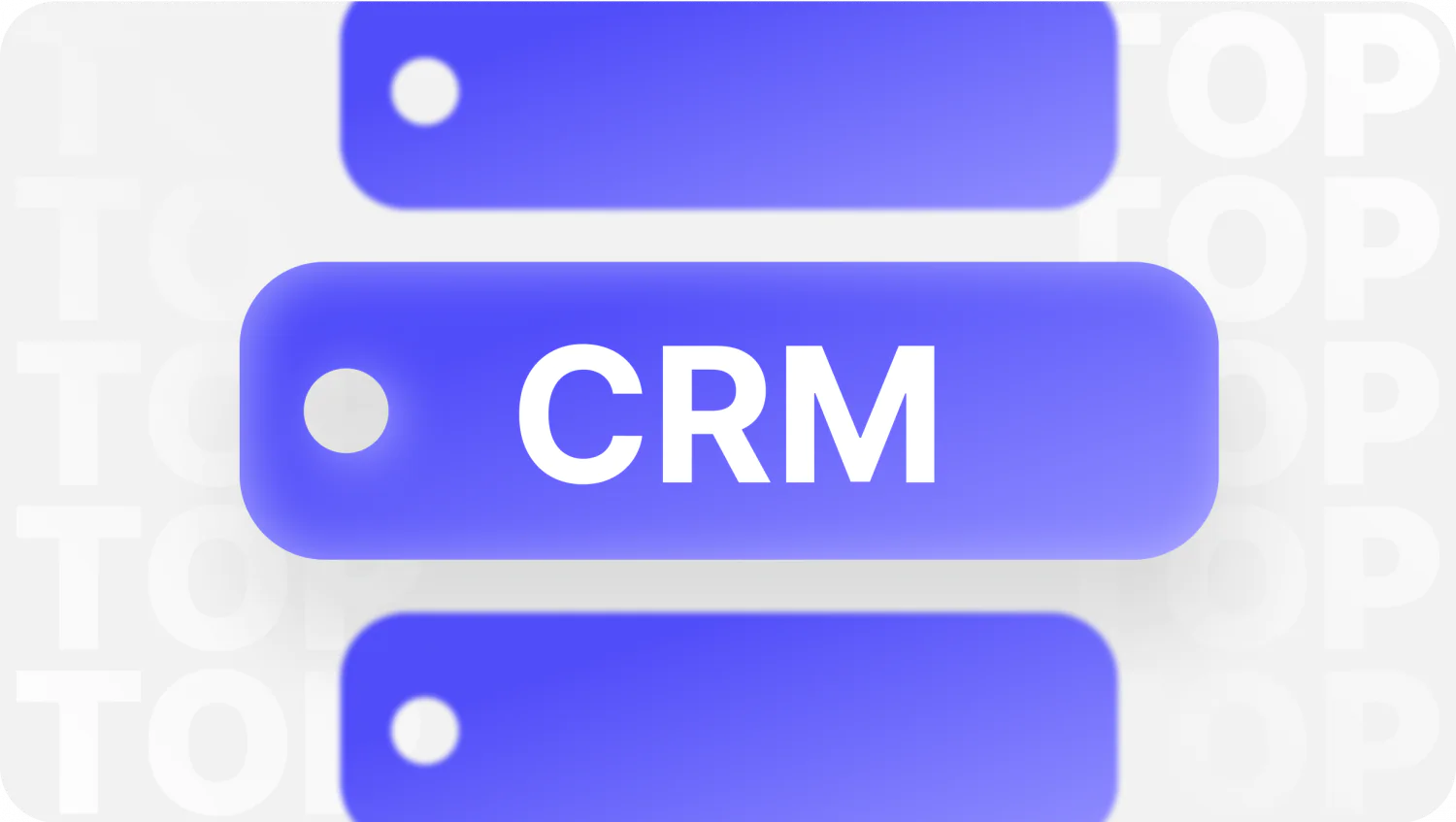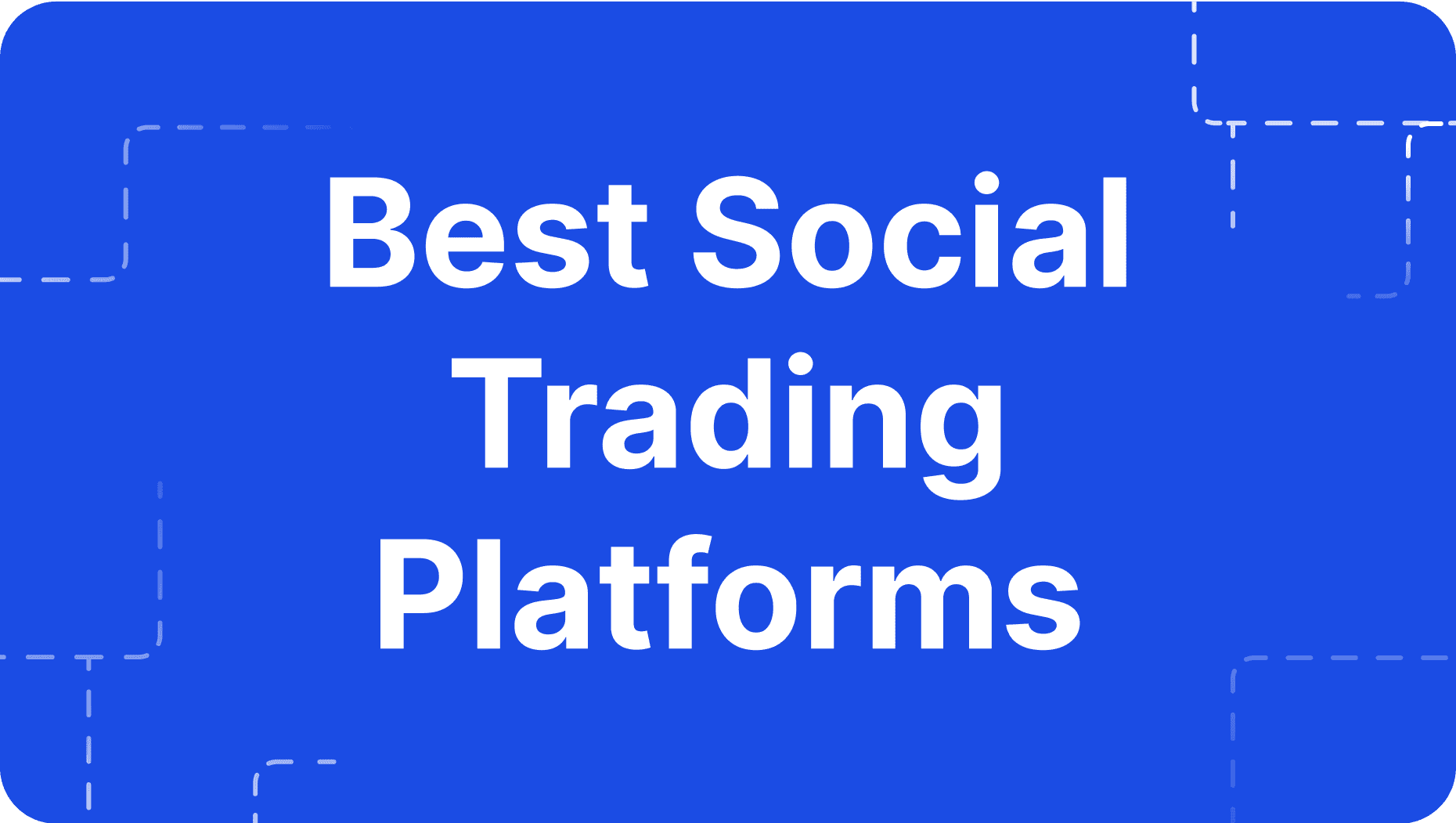Share
0
/5
(
0
)
Businesses are increasingly realising the importance of using Customer Relationship Management (CRM) systems in making their workflow very efficient and effective.
This unified software gathers all business activities in one platform, including customer data, leads generation, sales data and status, and report creation.
CRM systems offer different automation solutions that make it easier for business owners to overwatch and track their work stream. However, the last years saw new CRM trends with developments in artificial intelligence and automation, so let’s discover the latest trends in CRM software.
Key Takeaways
CRM technology assists businesses in compiling all client and business information in one CRM solution.
CRM data can be integrated with artificial intelligence and machine learning using customer data to improve customer experience and business practices.
Customer data platforms drive the business’s activities and decisions and shape the right CRM strategy.
The CRM industry can benefit significantly from the thriving tech industry to create the best software solutions.
[aa quote-global]
Fast Fact:
In 2023, more than 1,700 CRM providers exist in the United States, an almost 15% increase from the previous year.
[/aa]
What Is CRM?
Customer Relationship Management software helps businesses streamline their processes easily and more efficiently. CRM platforms, usually developed by CRM providers, allow organisations to maintain customer relationships, client information, and sales activities in one place.
Additionally, companies can optimise marketing efforts and gain valuable insights about customer preferences, automate processes, and launch customer service campaigns. Moreover, most CRM systems allow different integrations for service providers to centralise the whole workflow.
For example, you can opt-in for email provider integration and allow the CRM solution to send emails and reply using CRM data or enable CRM users to send emails through the system, which smoothens the process for the sales and marketing teams.
Customer relationship management systems have been in the CRM market for quite a long time, but many companies are still unable to make the most out of CRM technology.
However, with the massive technological developments, the future of CRM is very bright, and the introduction of AI will take CRM technology to another level.
Why Do You Need a Customer Relationship Management System?
Businesses and companies no longer record their activities using paper and pen. Now, everything is recorded on the computer somewhere or using a system, such as a CRM system.
Companies from different industries use these systems to serve their various purposes. There’s CRM for Forex brokers, where a broker can maintain a list of customer data, customers’ trading activity, and interest.
Then, using the CRM data, the broker can offer customised products and services and indulge in trading activities. On another level, supervisors can overwatch the work process and generate valuable reports and dashboards about performances, status, sales data, and more.
Similarly, a marketing agency requires CRM software to keep track of its marketing campaigns and the clients it serves and update its social CRM and marketing channel. This helps business development and growth for businesses and individuals.
CRM Trends in 2023
Customer relationship management systems have always been associated with technological advancements, and today’s technologies drive many CRM trends.
Therefore, follow these top CRM trends to optimise your business outcomes and customer service processes.

The Rise Of Artificial Intelligence
Artificial intelligence is not only about doing things instead of humans but also about doing tasks that humans cannot do.
For example, CRM software can analyse customer interactions on the business webpage they spend time on, which helps create an idea about the client’s interest and build the customer data.
Most CRM trends revolve around AI, which improves work efficiency, enhances customer satisfaction, and simplifies workflow for the customer service department.
Many CRM systems utilise AI to perform repetitive tasks more accurately every time, such as sending emails or replies, making appointments, and recording interactions with clients.
Chatbots are CRM solutions that respond to customers’ inquiries and provide a sophisticated answer. They can either give an answer or direct the user to the proper page or article and answer their questions.
More Automation
CRM automation is becoming increasingly important for organisations to fasten their work processes. This ranges from sending automated data entry to creating personalised offers and campaigns.
Small companies may see some benefits only from automation due to their limited business requirements. However, large companies benefit significantly from automating CRM systems to do a large chunk of their tasks.
These tasks include social media management, data entry, categorising existing client lists, and allocating resources to address each client’s needs.
Eventually, automated CRM systems assist companies in enhancing their productivity, lowering costs, improving customer relationships, and investing in the right learning areas for the sales teams.
Adopting IoT
The Internet of Things (IoT) is the collection of high-tech devices powered by software, connectivity, sensors and processors connected using the Internet.
Hence, this wired or wirelessly connected network helps users access their information using different devices. Similarly, in businesses, IoT helps business managers overwatch the workflow from different devices very quickly.
Further Internet of Things (IoT) development will help businesses integrate different datasets and APIs using different devices into their CRM systems.
Additionally, the data exchange with IoT devices assists businesses in learning more about their customer behaviour using multiple devices, like mobile CRM, to improve the customer experience.
Self-service CRM
A CRM system does not need to be complicated to be useful, and self-service portals emphasise the importance of simple user-interface CRM solutions.
More CRM providers offer personally customised systems that users can adjust based on their preferences and business needs. This makes it easier for small businesses to hop on recent trends in CRM software and make the most out of it.
These CRM platforms utilise no-code tools, where users can drag and drop and select the features and options they would like on their CRM, like a white-label platform.
Increased Personalisation
CRM system is all about big data, which drives most of the systematic decision-making. Therefore, personalising customer data for the user base allows creating personalised messages, products and services, campaigns, recommendations and promotions.
Personalisation also helps the sales teams better understand customer needs through interactive customer touchpoints. Eventually, suggest training sessions and learning to improve in areas where the customer interest is increasing.

What Does The Future Look Like For CRM Systems?
The future of CRM is highly dependent on technology development, which drives much of the CRM trends today. It seems there’s a lot to expect from the CRM market.
Voice and conversational UI with mobile CRM could be the new CRM trend, empowering faster interaction between marketing or customer service reps and software solutions.
It is difficult to predict the next step for CRM technology, but we might see these systems upgrading from assisting businesses to making informed and data-driven decisions that can improve businesses.
Conclusion
Customer Relationship Management is becoming more critical for all companies regardless of their industries. It makes their processes easier, faster, and more efficient and helps generate more accurate information, leading to improved customer experience.
The massive technological advancement boosted automation solutions, artificial intelligence, and machine learning in these systems to help businesses grow and expand.
Read also





